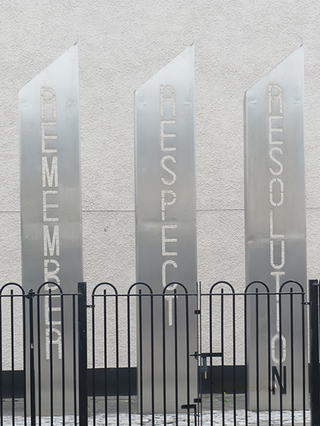Career
When Does Conflict Move in a Good or Bad Direction?
We should work hard to approach conflicts as mutually shared problems.
Posted August 31, 2017

Morton Deutsch, eminent psychologist, Columbia University professor, mentor extraordinaire, and one of the founders of the field of conflict resolution, died last March at age 97. In honor of his passing, I have selected a series of ten major scientific contributions that Deutsch made in his efforts to promote a more just, peaceful and sustainable world.
4. When does conflict move in a good or bad direction? A theory of cooperation and conflict resolution
In Deutsch’s research at MIT on cooperation and competition in groups, he discovered something critical. The initial studies were conducted with students in introductory psychology courses. Half of the classes were composed of groups of students graded competitively within their groups on a curve. The other half were graded cooperatively, where all members would share the same grade – their group average.
When the students in these groups had conflict – which happens in all groups – they responded in very different ways depending on which types of groups they were assigned to. The students in the competitively rewarded groups tended to view their conflicts as win-lose struggles against the other members and so would often become defensive and go on the attack, while those in cooperative groups tended to see their conflicts as mutual problems that they needed to solve jointly and constructively in order to proceed making progress on their shared goals.
This finding was of central importance to Deutsch’s subsequent theoretical work on conflict resolution. It suggested that constructive processes of conflict resolution were similar to cooperative problem-solving processes where the conflict is seen as a shared problem, and that destructive processes of conflict resolution were similar to competitive processes where the conflict is framed in win-lose, us-them terms. This basic idea was subsequently developed further and cascaded into a variety of research propositions outlined in Deutsch’s classic 1973 book, The Resolution of Conflict, which provides a general intellectual framework for understanding conflict and the conditions that foster a constructive (versus destructive) trajectory. Eventually, this framework led to a wide array of practical methodologies and trainings for the constructive resolution of conflict at home, at work, in communities and between nations.
The basic takeaway from this, Deutsch’s most influential and celebrated theory, is that – when possible – more collaborative approaches to resolving win-win or mixed-motive disputes (in other words, the majority of conflicts in our lives) work best. They can increase creativity and innovation; enhance the quality of decision-making and performance; strengthen relationships; lead to more effective management of resources and risk taking; result in a reduction in bias; increase leadership effectiveness; and lead to higher employee satisfaction and increased organizational commitment.
We should work hard to approach conflicts with others as mutually shared problems to be solved together. This may not always be possible, but it is often much more possible than we think. It also makes it more likely that everyone involved will get what they need, that any agreement reached will last, and that the conflict will not escalate or spread.
References
Deutsch, M. (1973). The resolution of conflict. New Haven, CT: Yale University Press.


